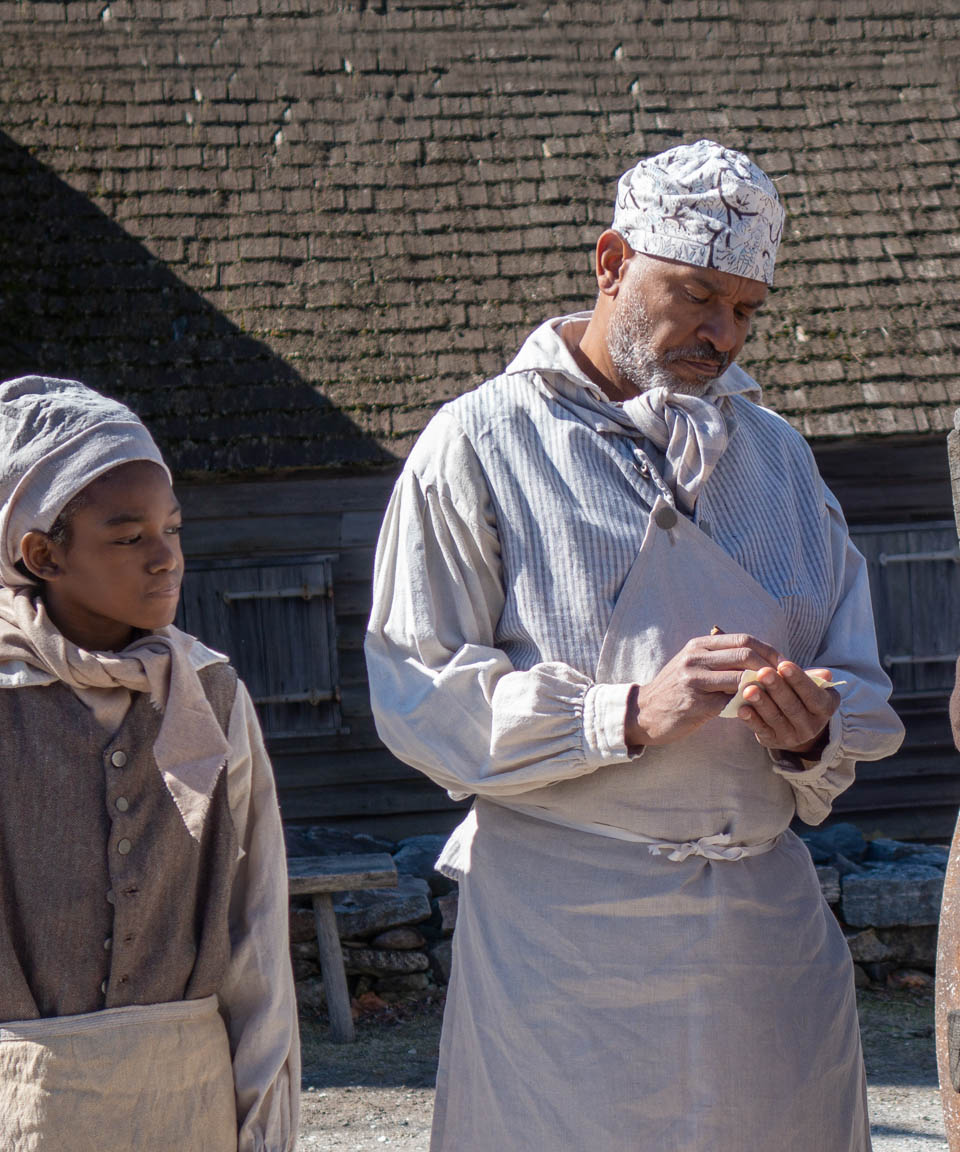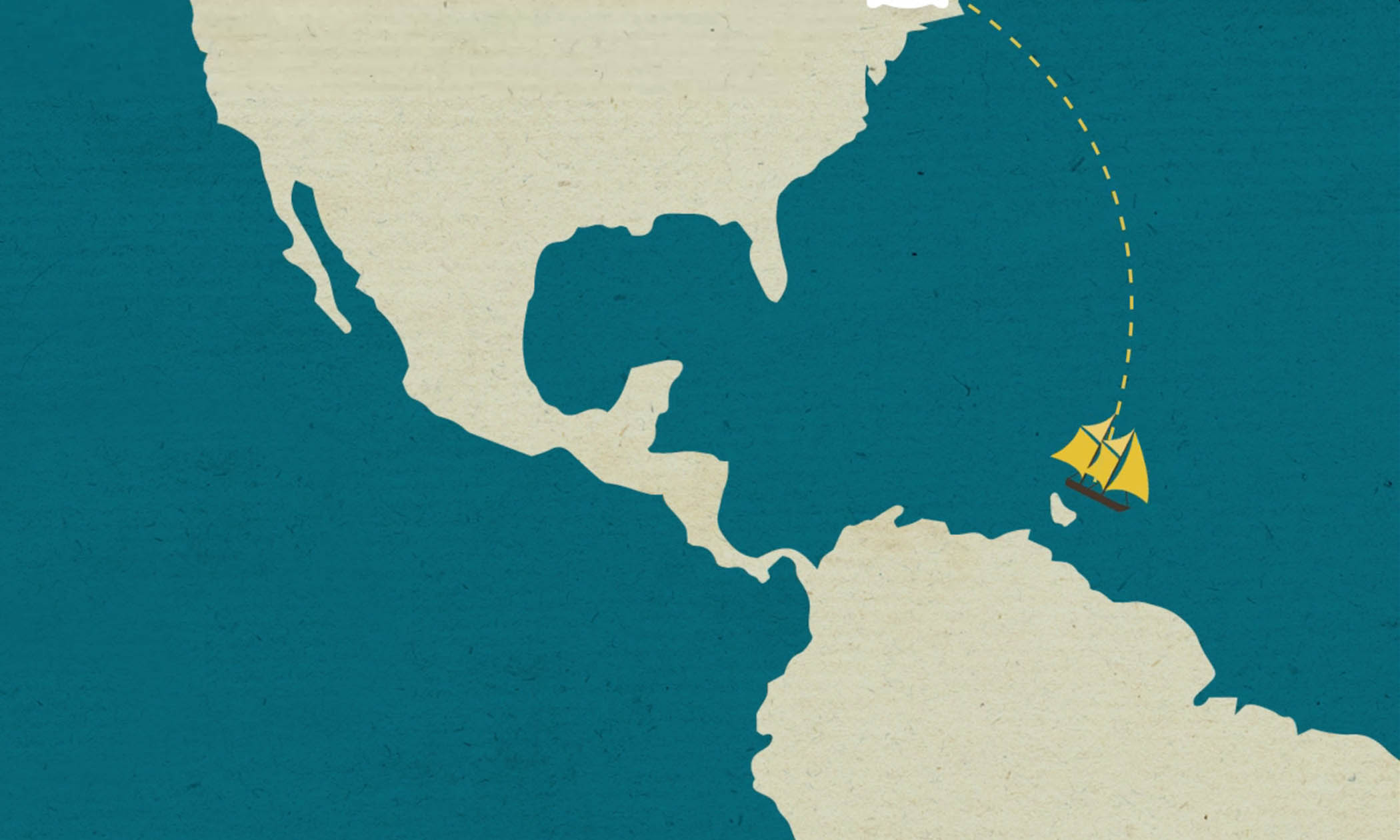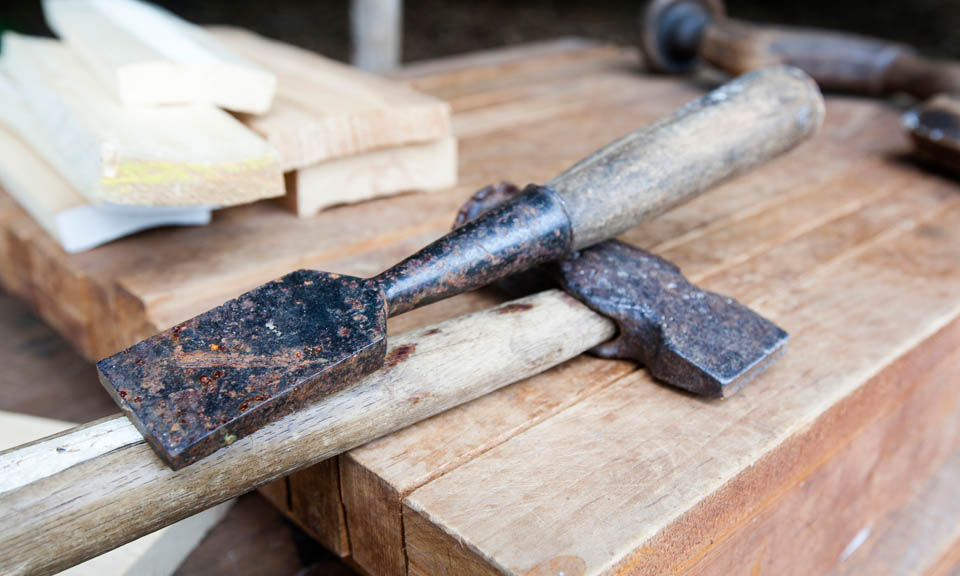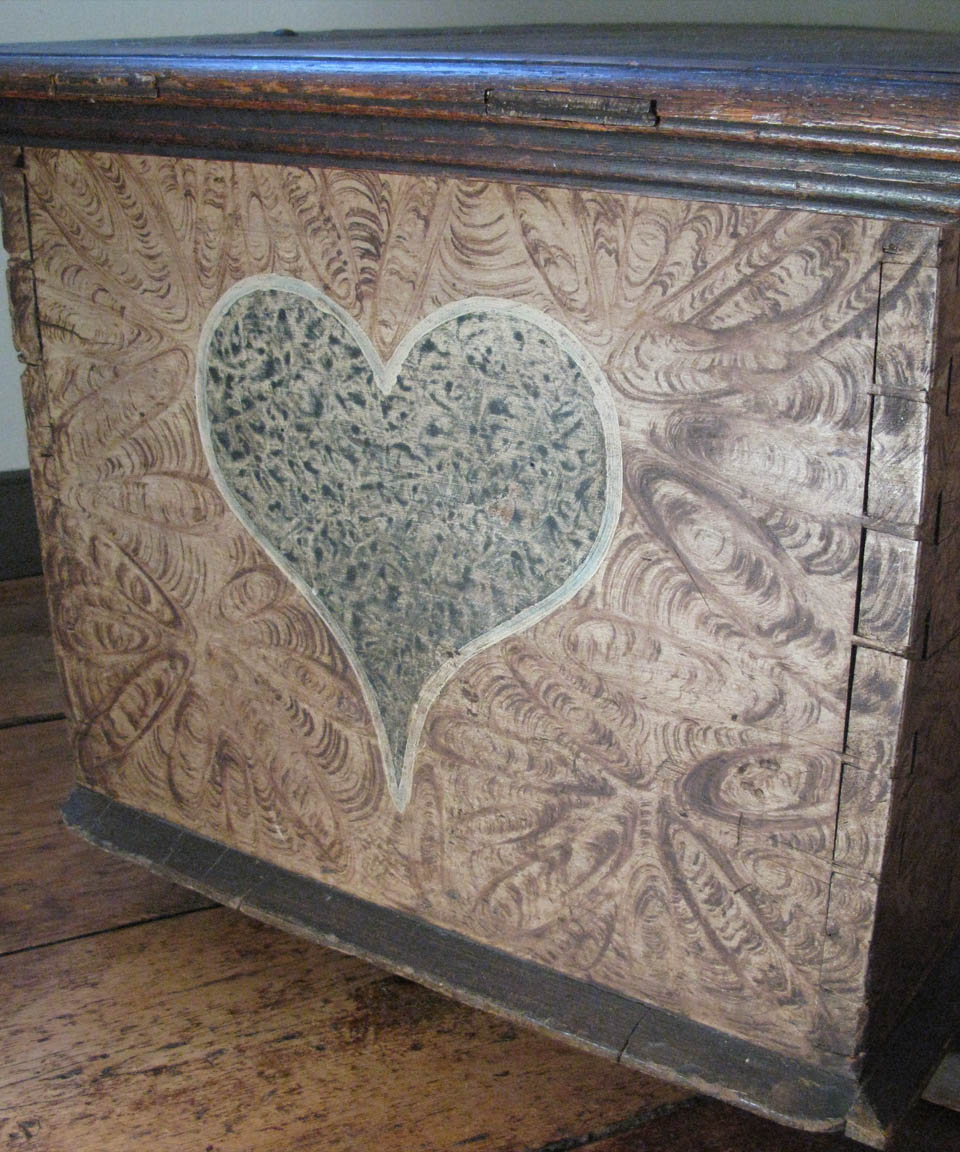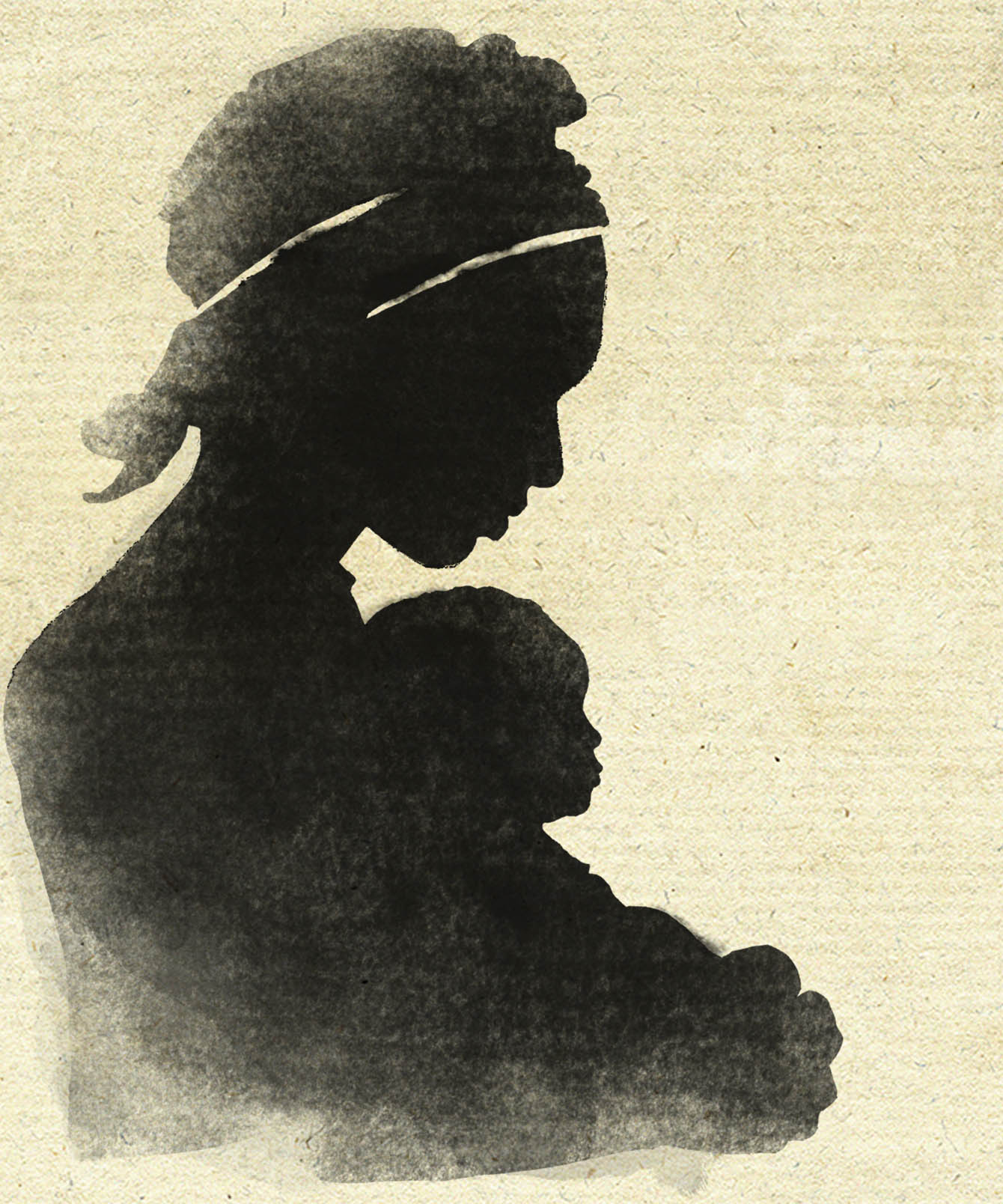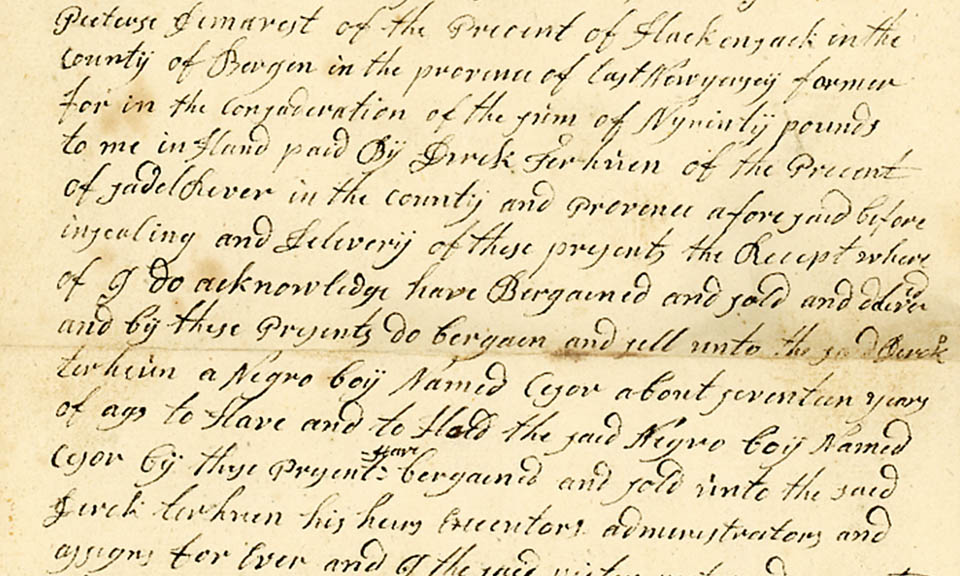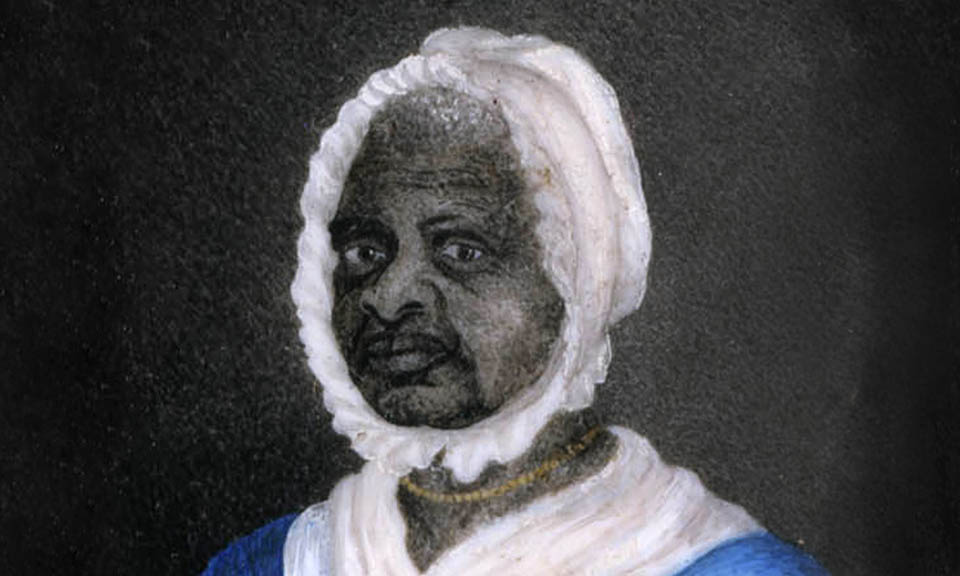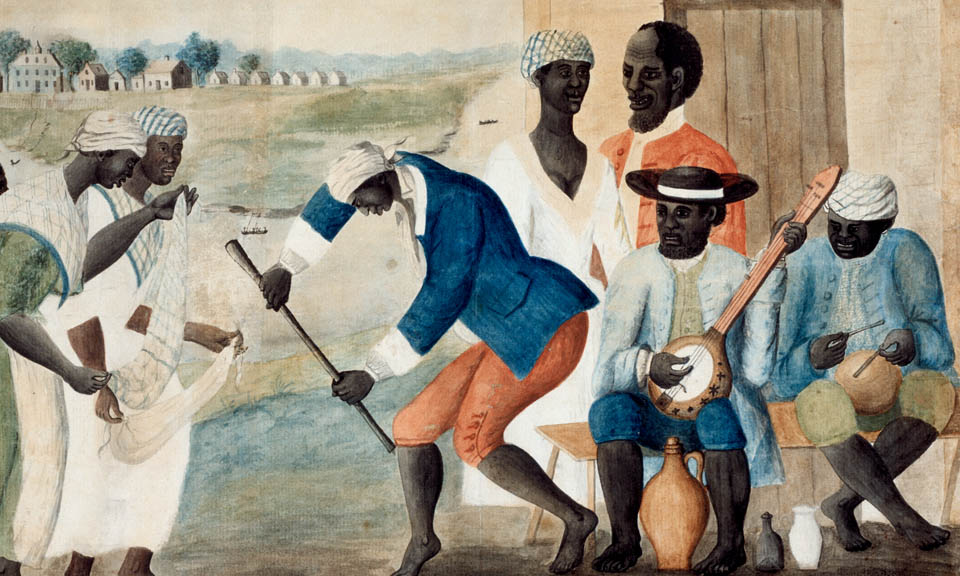Chapter 2
Being Enslaved
Being enslaved meant being the legal property of another person. Enslaved people learned trades but were not compensated for their skilled labor. They could have their marriage denied or their family separated through a sale or a bequest. Nevertheless, enslaved families persevered, their elders passed down knowledge and traditions, and communities emerged and adapted to the changes forced upon them.
Skilled Labor
The labor of highly skilled enslaved workers made their enslavers extremely wealthy. However, the technical expertise of enslaved craftspeople—like Caesar the miller—did not protect them from the realities of their legal status as property.
Marriage
Enslaved families were rarely permitted to stay together, and enslavers often threatened them with forcible separation as a method of control.
Family
Enslaved individuals woke up each day with the knowledge that at any moment they might be forever separated from their families. This was surely one of the most difficult realities of enslaved life.
Elders
Enslaved individuals were often subjected to hard labor and malnourishment. As they aged, their capacity for work declined, and enslavers labeled them "unfit for labor" and appraised them in estate inventories as having little or no value. The enslaved community, however, greatly respected elders as caregivers, oral historians, and culture keepers. To them, elders had infinite value.
Community
To help endure the harshness of everyday life, enslaved people adapted aspects of many traditions—both African and European—to create a culturally rich community that reinforced their ability to survive and even offered moments of hope and joy.


